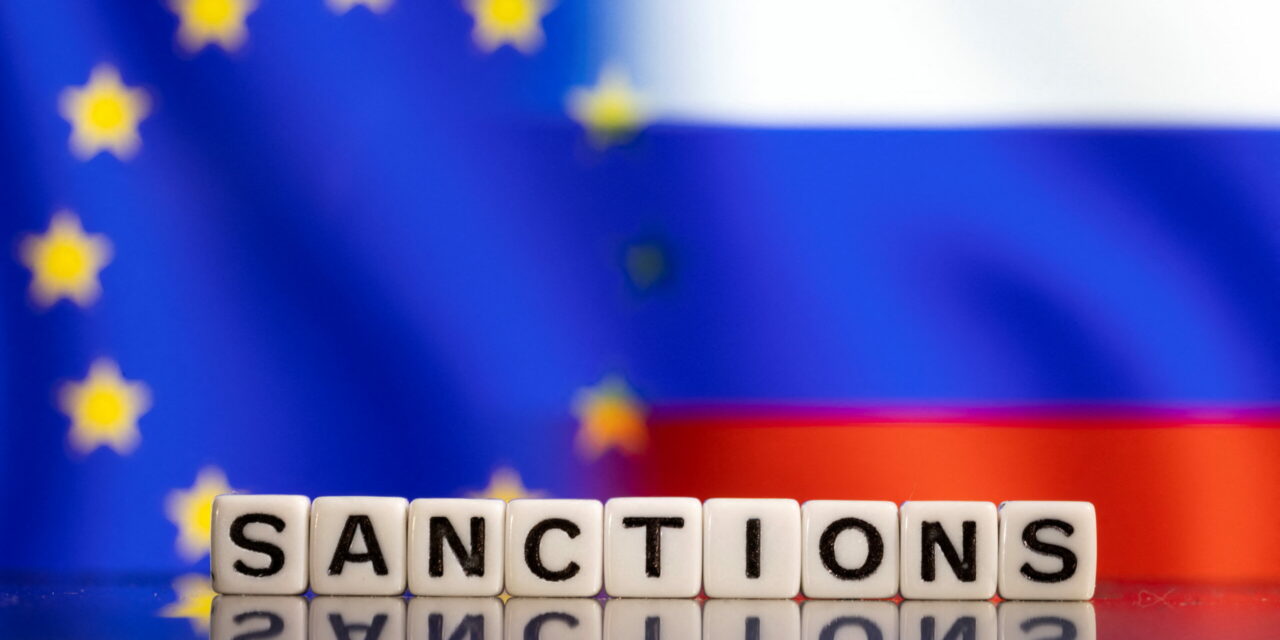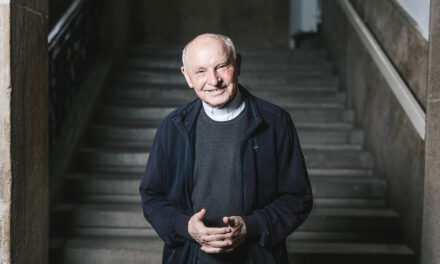Emmett Penney, an American journalist focusing on energy issues, spoke to Neokohn about the disastrous energy policy of Western countries, where engineering discipline has gone, and whether the transition to renewable energies is even possible.
Let's talk about the energy crisis, what do you think about the current situation in Europe? What will be the end of this, is it allowed to be optimistic at all?
I'm not optimistic. I think this will be very, very painful in the short term.
People make the mistake of treating hydrocarbons or fossil fuels like any other commodity. However, they are not, because these goods form the basis of everything we do, including the basis of food.
In Europe, high prices will cause a loss of wealth, and then there is the possibility of the migration of production. If there is a fundamental shortage, for example, people can't get hydrocarbons in Europe and they continue to resist things like fracking, or they continue to rely on the United States - which has its own problems using its incredible abundance of fossil fuels - then mid- and maybe even in the long run it will be painful.
What do you think about the sanctions against the Russians, how do they affect all this?
I had a mentor who once told me that holding a grudge against someone is like drinking poison and thinking you're going to kill the person you hold a grudge against.
I think the sanctions were like drinking poison thinking we were going to kill the person we were sanctioning.
This can still change. It really was a boomerang that came back to tear Europe to shreds. And it was very painful to watch from America, because even though the US has a lot of domestic energy, most of our east coast still has to buy LNG (liquefied natural gas) from the same market as Europe, Asia and everyone else. So they will also be in for a very unpleasant surprise in the winter.
I think there is a lot of ignorance and naivety about energy. I believe in climate change and I'm a big believer in environmentalism.
But when the energy ministries became ecology ministries, the engineering discipline was lost, which, in my opinion, led to erroneous and thoughtless decisions.
I believe that sanctions are a product of this long-term trend.
As far as I could tell - there seemed to be a lack of leadership in terms of how to respond to a column of tanks moving towards Kiev.
Part of the problem is that when you're rich, you can overlook a lot of things. And one thing that has been overlooked is how things actually work.
One of the problems seems to be that politicians thought they could easily switch from fossil energy sources to renewable energy sources. Now, however, it seems that it is not so simple, but then why are they not correcting it?
I think the reason for this is partly a lack of knowledge and partly political opportunism. In order for a politician to say it won't work, they have to not only take the risk, but also implement the new idea, and most politicians don't want to do that.
Khrushchev told Richard Nixon that if people are afraid that there is a big river out there somewhere, they should not be told that there is no river, even if it is true. But you have to tell them that you built a bridge over the river.
And I think a lot of invisible bridges are starting to be built around renewable energy.
Green subsidies are very attractive to banks. So there is also a financial element. Now Germany is continuing to shut down nuclear power plants - I can only imagine how frustrating it must be for all other countries and how difficult it must be to watch them do this. But it seems that as a result of this, people are reconsidering the path based solely on renewable energy sources.
I think the transition is possible, but it will take much longer than I would like. Mistakes related to the transition probably stem from a misunderstanding of the course of the Industrial Revolution.
Karl Marx and Arnold J. Toynbee lived through the incredible explosion of thermodynamic capabilities, the steam revolution and the coal revolution. And since they were living in it, they wrote that it was like the French Revolution. But in reality, looking back, it took us about 200 years to get to where they were. So it wasn't really a revolution in the sense that we usually think of it. We should think about the energy transition in the same way as we think about the industrial revolution. It will be a long process. The consequences of getting rid of fossil fuels immediately are catastrophic.
Added to all this is climate panic, which urges the transition. What can be done with this?
Environmentalists have to be confronted, but not all of the movement's ideas are bad. I myself am a supporter of nuclear energy because I am interested in the emission of harmful substances into the environment.
In response to the message of environmentalists, we must offer a vision of competence, hope and abundance.
Since the oil shocks of the 1970s, fear and anxiety have been the default response to difficult problems. And I think we have to let that go if we're ever going to overcome, primarily the obstacles we face, but also to dislodge the environmentalists' moral monopoly on energy.
He wrote an article about California in the Spectator World magazine, in which he writes about the state's stupid energy decisions... Could you talk about what happened in California and the United States, where there are plenty of own energy sources and yet there is a crisis?
California has always been at the forefront of what America has done with electricity. And they never stopped trying to lead the way, even when it hit them in the face, so to speak. Over time, the green movement gained a strong foothold in California's energy policy, with strong support for wind and solar power. This then acted as a parasite on the grid and pushed reliable generation out of the market.
The ratio works so that for each megawatt of installed renewable energy, 1.15 megawatts of reserves are required. This is usually natural gas because it can turn on exactly when the sun goes down. And this is good as long as the state really takes care of the forests, can manage forest fires, and as long as the large utility providers do their job. So far, however, this has not happened in the case of California, and it has become very dependent on imports from other states. What California is going through right now is what I call the “fatal trinity” of over-development of wind and solar, over-reliance on just-in-time natural gas, and over-reliance on imports from other states.
It basically plays out the same as in Germany, if California had invested in nuclear power instead of renewables, its grid would have become carbon-free.
But instead, here is this monstrosity. And the state's stock of diesel backup generators is 24 times larger than the stock of fuel. So that means emissions are basically getting worse, but everyone conveniently ignores that.
What do you think of Biden's energy policy?
I think the Democrats, if I want to be maximally generous towards them, it must be admitted that they are in a very difficult situation. They have a very vocal, very persistent environmentalist wing that doesn't compromise because it believes the world needs to be saved. And their job is to keep the country from falling apart. And this balance is very difficult to find.
Another problem is that Democrats have such a negative relationship with the fossil fuel industry. And they don't really understand how this industry works.
In addition, not since Harry Truman's presidency has a US president leased so little federal land for oil extraction.
As you mentioned, you are a big supporter of nuclear energy. How do you think the current energy crisis might force Europe to rethink its approach to nuclear power?
Yes, you can already see the seeds of this. The Germans are closing nuclear power plants, right? And now the Dutch have also closed a power plant. But, for example, Macron stood behind nuclear energy. Poland is basically the home of advanced nuclear energy. I understand that they will soon be negotiating with the South Koreans and some other organizations to build large-scale reactors. So I think that the more practical countries or the more threatened countries will overcome their fear of radiation first.
The energy crisis is the harshest physics lesson we can get.
Featured image: Shutterstock













